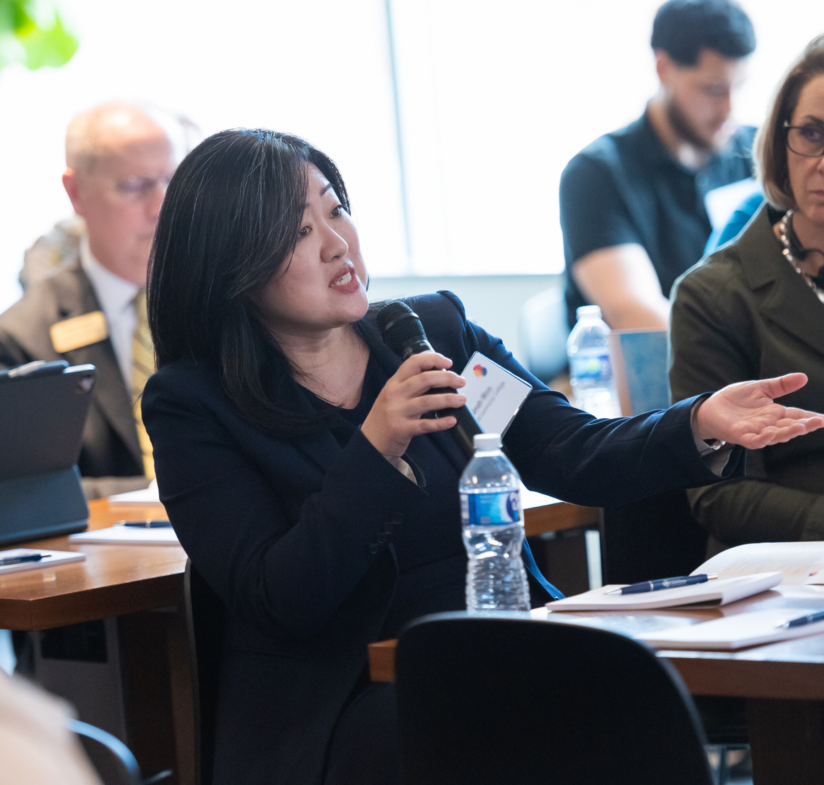Earlier this month, Greater Washington Partnership held its inaugural Skills Forecasting Summit, a strategic gathering where more than 45 leading HR, industry and education subject matter experts from key industries and academic institutions shared insights and strategy for anticipating top skills needed by the region’s future workforce.
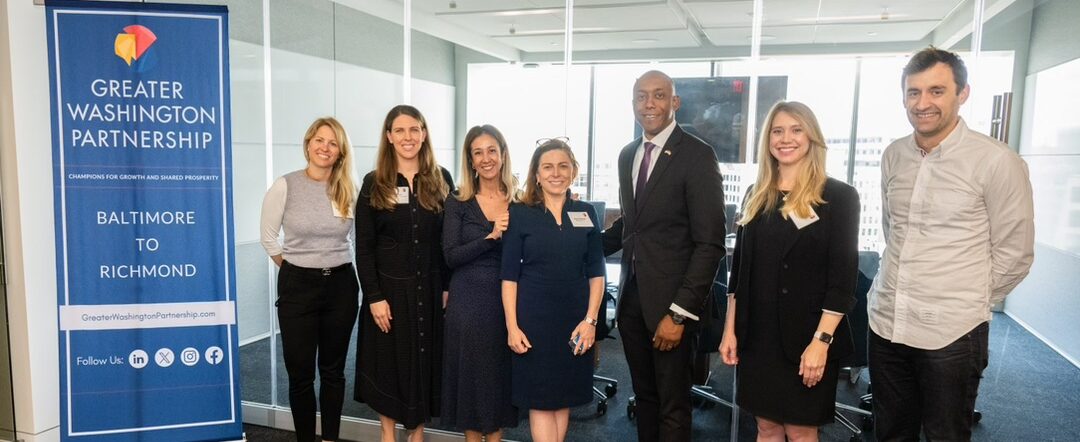
Though our region boasts one of the most diverse, educated and participatory workforces in the country, a rapidly shifting labor market and the looming jobs impact of AI underscore the need to anticipate the skills that will drive tomorrow’s economy and keep the Baltimore-Richmond corridor ahead of the curve.
The Partnership’s Skills & Talent initiative promotes transparency between educators and employers regarding the skills needed to obtain entry-level roles in the region from Baltimore to Richmond. One of the tools we used to do this is the Employer Signaling System, our online database that combines quantitative data with qualitative insights directly from employers to paint a comprehensive picture of the region’s labor market.
While the Employer Signaling System outlines the employer needs of today, employers and educators must also be proactive in anticipating the needs of tomorrow to ensure that the region’s learners are equipped for the workforce when they enter it – whether it be in two years, five, or further out.
The event, hosted and supported by our partners at McKinsey, kicked off with opening remarks from Chike Aguh, Senior Advisor for the Project on Workforce at Harvard University and former Chief Innovation Officer for the U.S. Department of Labor, that emphasized the timeliness and high priority of the Summit’s agenda and future skills forecasting efforts.
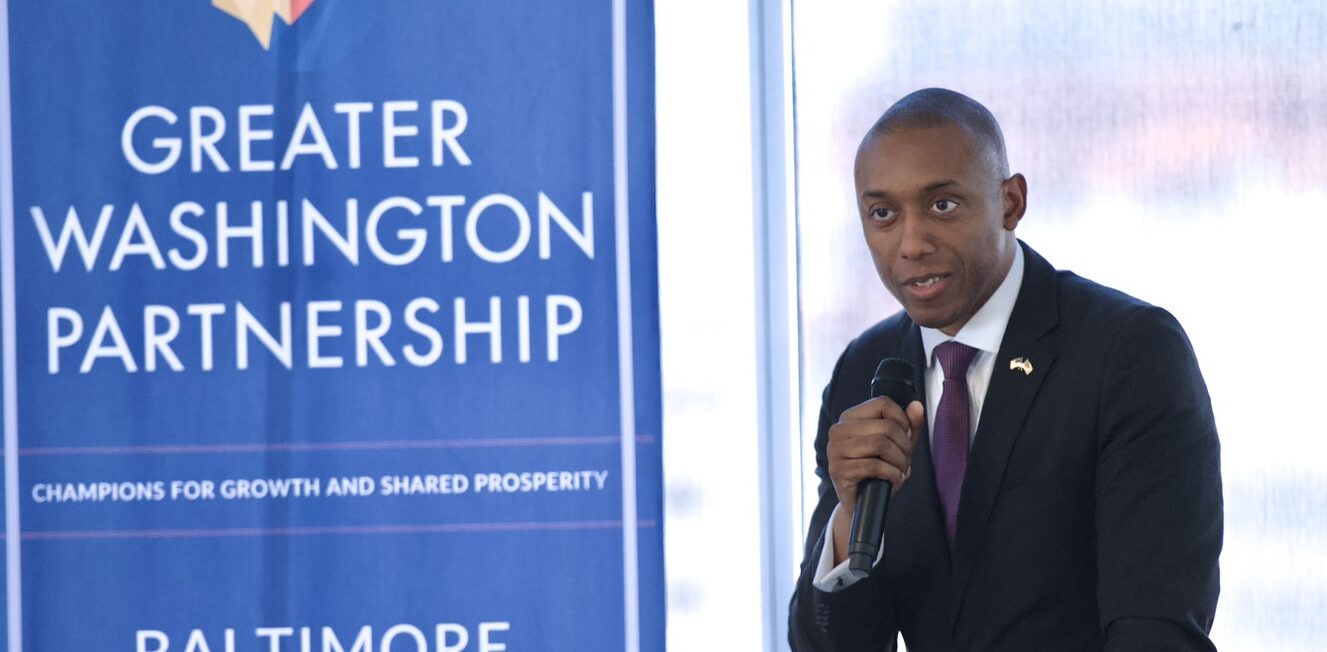
The future of work in this economy and in this region is up to us. It is up to us to be proactive in anticipating the skills that will set workers and their employers up for success – and to communicate these skills to those equipping talent for the future.” – Chike Aguh
Following Chike’s remarks, McKinsey Partner Brooke Weddle shared a data presentation to ground participants in the current state of the regional labor market, including where there are talent and skill gaps across industries.
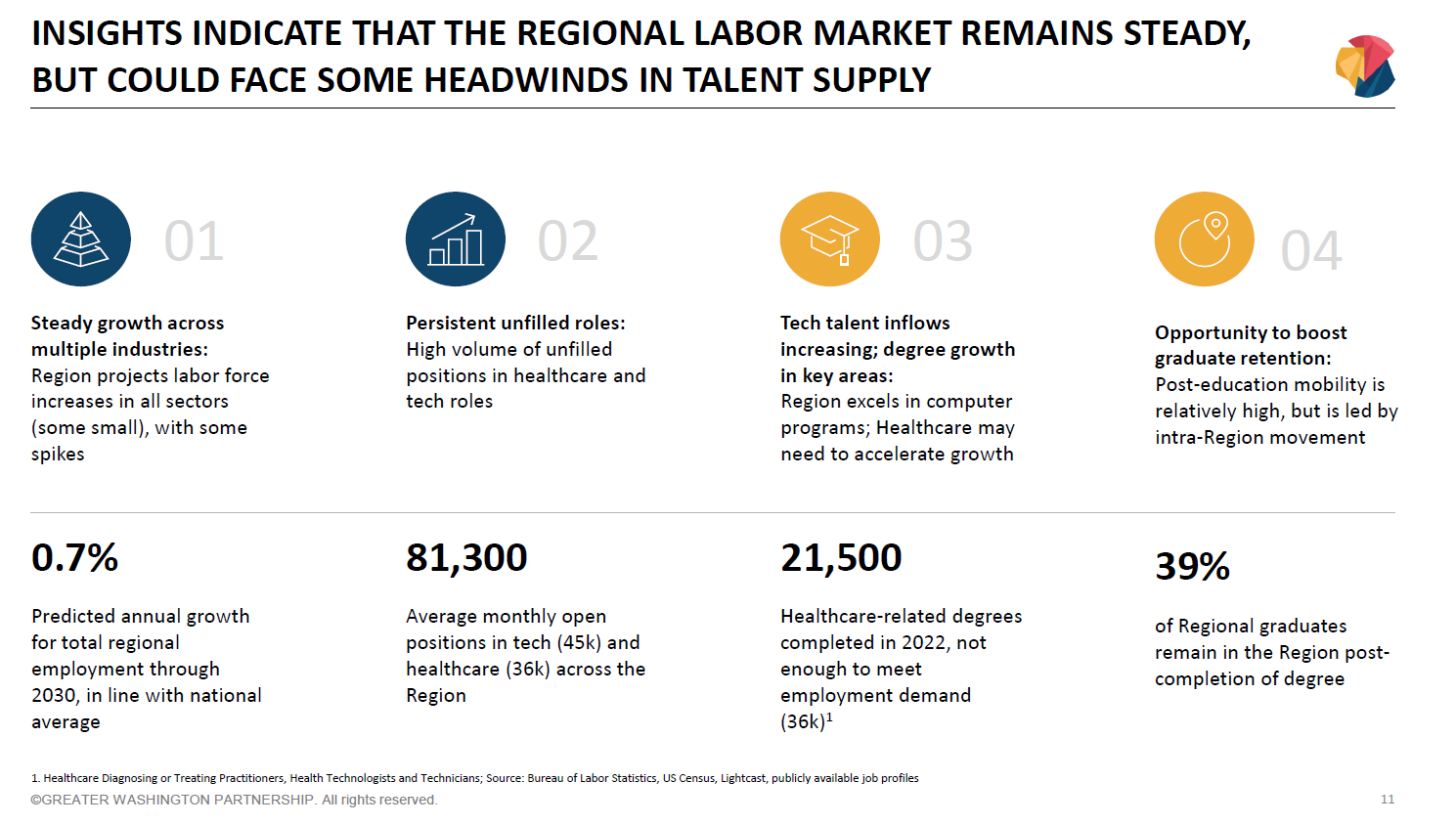
Associate Partner Vivian Breaux then presented on data outlining the future of skills in the region, including the following key insights:
- Skill gaps in our region are concentrated in core manufacturing, tech and AI, and health care, which sees a monthly unfilled job posting rate of 79% in the region.
- The future of work will require workers to have increasingly more social, emotional, cognitive, and technological skills to succeed.
- The Greater Washington Area has seen explosive growth in AI/ML and other specialized technical skills – which may increase the supply/demand mismatch across industries.
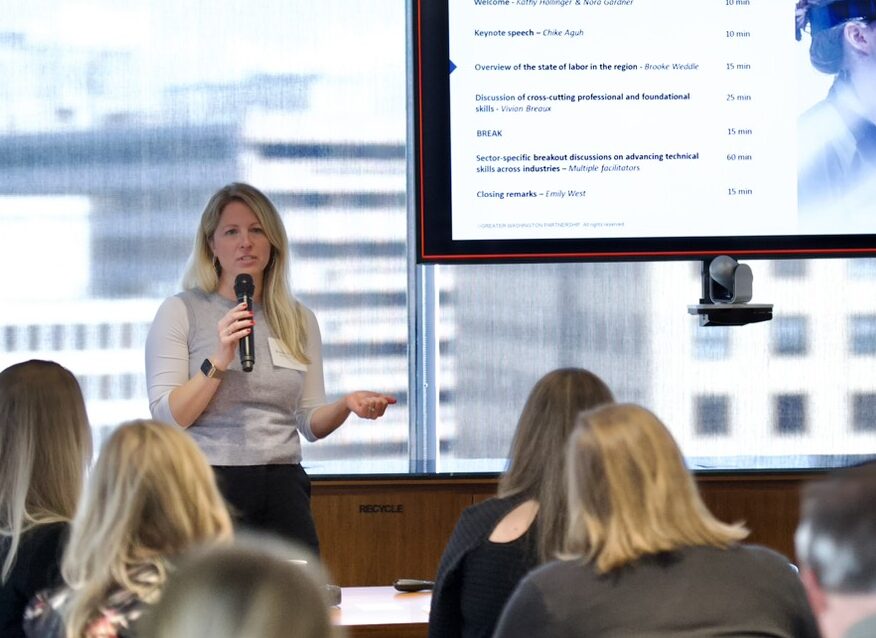 |
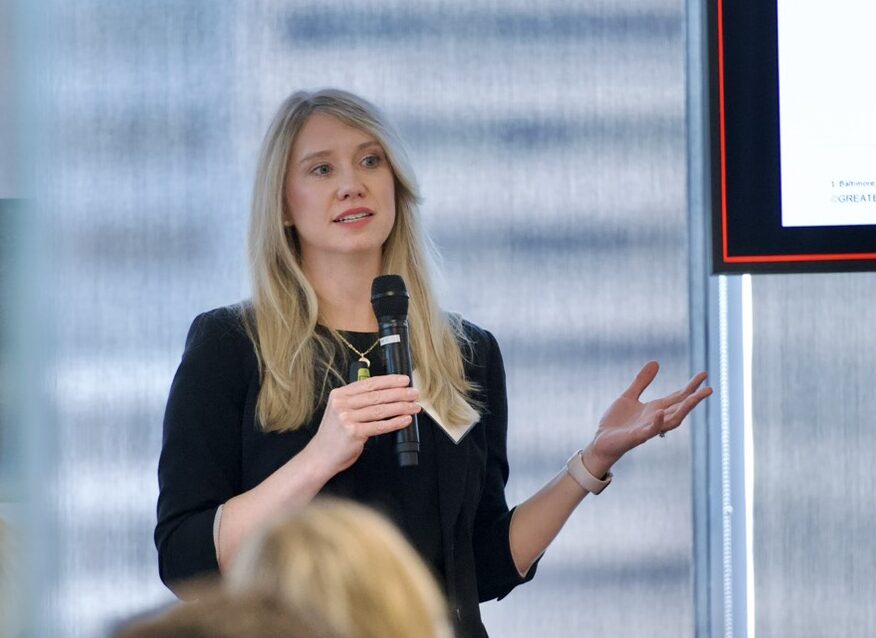 |
Attendees then participated in guided discussions on overarching foundational skills that cut across different fields and skillsets that will be in-demand in the years to come in specific industries: technology, healthcare, and advanced infrastructure. A few trends emerged from these conversations, such as:
- Employers are increasingly interested in shifting to a skills- and competency-based talent acquisition strategy. But this approach is hindered by difficulty amongst hiring managers in evaluating candidates on foundational skills.
- Across industries, regulatory requirements surfaced as a challenge to skills-first hiring.
- Healthcare is highly regulated as an industry, which acts as a barrier to entry for several key populations.
- For tech roles in the region, security clearances act as a hidden skill requirement, and programs to train tech talent should have avenues to obtaining a clearance built in.
- In tech and advanced manufacturing, policies around new digital and hands-on tech make training difficult, as employers are unable to build skillsets on tech that hasn’t yet passed regulatory requirements.
- The impact of AI on future skills is an outstanding question and will require an increasingly agile workforce – but AI is unlikely to replace core human skills like empathy in the workplace.
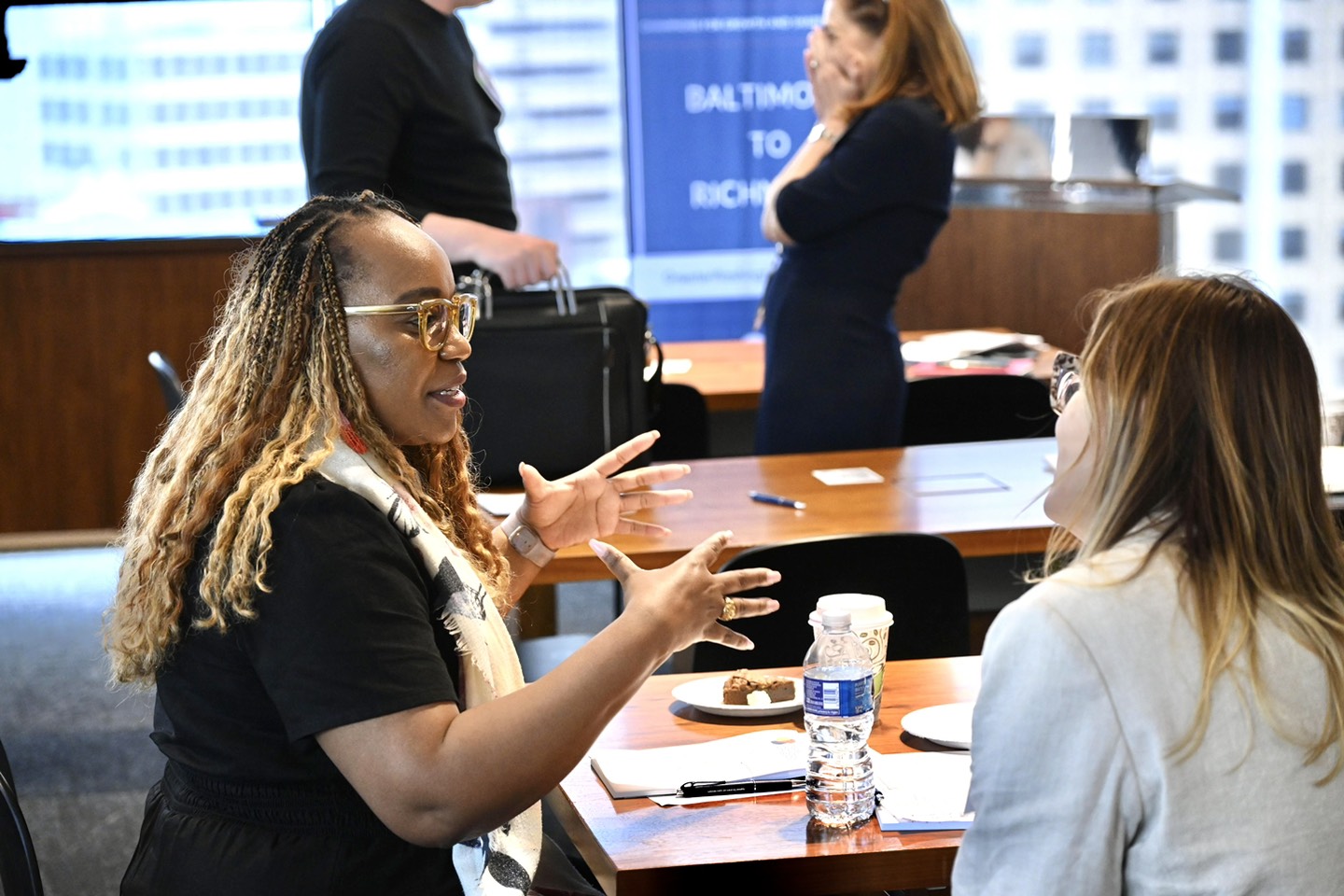 |
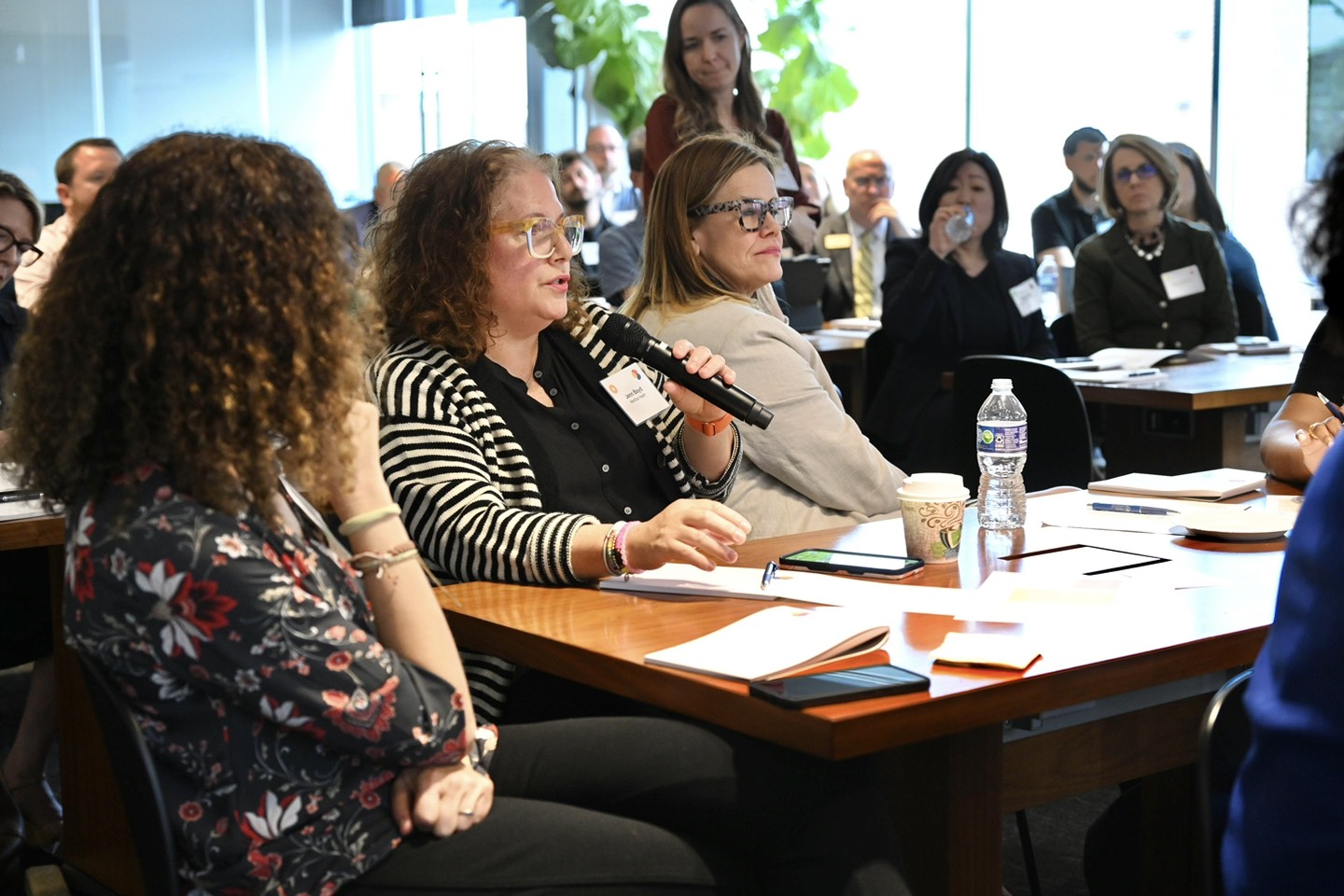 |
We are grateful to all our partners for their participation and for lending their expertise to this critical conversation. In the coming weeks, the Partnership and McKinsey will publish a brief to share key data and insights from the Summit. To learn more about the Partnership’s work to equip learners with the in-demand skills of today and tomorrow, please email Emily West at [email protected].
